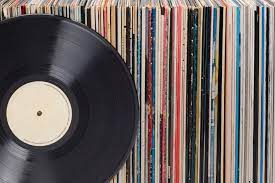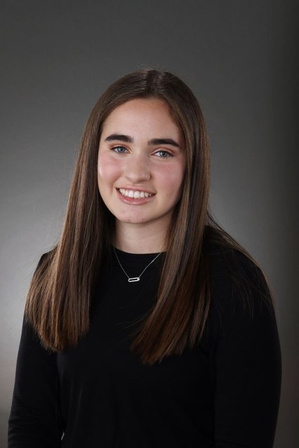Immigration in Relation to the Music Industry
By Lily Grossmann, Gabrielle Levenson, Orlando Huwe & Talia Newman



Talia Newman
Orlando Huwe


About Us
Hi! We are four seniors at Highland Park High School who wanted to make this website to educate others about immigration's portrayal in the music industry. We chose this topic because we are all very interested in music and wanted to learn what role immigration plays in it. As we did some research we learned that there aren't a lot of positive portrayals of immigration. We designed this website to give people a space to see immigrants in a new light.
Lily Grossmann
Gabrielle Levenson
The Problem & How We Feel
We feel that immigration has been -and continues to be- negatively looked upon by the music industry. Historically, immigrants have not had fair treatment in the music industry, even though they have contributed so much to our country. In October of 1990, the US government passed an Immigration Act in an attempt to revise the entire immigration system, especially visa availability. According to a 1991 article, A 'Cultural Iron Curtain' Music Industry Condemns New U.S. Immigration Legislation, “The act, and its accompanying regulations, impose a maximum worldwide limit of 25,000 visas to be granted to foreign artists and athletes, compared to about 75,000 equivalent visas issued last year." From this, it can be inferred that the U.S. government is highly selective when it comes to choosing the individuals who can get visas and come into America. This would make it more difficult for immigrants who are part of concert tours and companies to travel in the US. In addition, a 2020 article by NYC Future, called The Changing Face of Creativity in New York: Sustaining NYC's Immigrant Arts Ecosystem, discusses how the COVID-19 pandemic affected all kinds of arts organizations, especially ones related to immigrants. "Immigrants have experienced the steepest financial losses of any New Yorkers, with more than half of all immigrant workers in many communities losing their primary source of income. The impact of this crisis is compounding the financial challenges already affecting immigrant artists, who earn just 88 cents on the dollar compared to U.S.-born artists.” Immigrant communities have been struggling financially because of this inequality, and their lack of access to unemployment insurance. This quote shows that racism and microaggressions still exist in the music industry, even in the very liberal New York City.
How You Can Make A Difference!
There are multiple ways that you can educate yourself and spread awareness about this topic in order to create a change.
Some ideas are...
- Multicultural music night
- Public speakers who work in the music industry
- Exhibits displaying music by immigrants to share their experience and voices
- Films/documentaries about immigrants who are in the music industry
- Classes taught by immigrants that relate to music
- Musicals/plays created by immigrants
- We have included some songs down below that you can check out
Music in Relation to Immigration
This is the American Dream, Young girl, hustlin', On the other side of the ocean, You can be anything at all.” Rihanna uses the word “hustlin” to emphasize that with hard work, anyone can succeed in America. She wants her audience to know that she wouldn’t be the icon she was today without her immigrant past.
A Safe Place To Land - Sara Bareilles + John Legend
“So say the Lord's Prayer twice, hold your babies tight/Surely someone will reach out a hand/And show you a safe place to land”
This song expresses the struggles that immigrants trying to cross the border into America have to go through. The lyrics encourage people to reach out and help provide shelter to immigrants.
"Been through some things, so I can't imagine my kids stuck at the border/Flint still need water/People was innocent, couldn't get any lawyers." These lyrics allegedly led to 21 Savage's arrest where it was discovered that he was an undocumented immigrant. The lyrics represent the problems America's border faces every day and how harsh border control is when dealing with immigrants.
Historical Resources
1
2
"From Invisibility to Erasure?: The Consequences of Hip-Hop Aesthetics"
This book chapter explains how hiphop music has been an outlet for minorities to share their stories, despite negative the stereotypes that surround the genre.
“Hip-hop aesthetics has offered many African American artists, writers, and musicians a form to articulate this social frustration and offer cultural criticism.” The hiphop aesthetic lends itself to cultural criticism because artists tend to be very personal and criticize societal issues.
5
"TV and Film Have Mixed Portrayals of Immigrants"
This article discusses that our music today comes from different cultures brought in by immigrants, and how stereotypes towards them are often made from mainstream media.
“Although film and television portrayals still imply that immigrants can only dream of ceasing to be outsiders, those same media have also provided an important counter-narrative for decades.” For example, the TV series "Savages" and "Breaking Bad" both portray Latin American immigrants as rebels or outsiders in America. Also, the show "Modern Family" portrays Gloria
3
"Informal Education, Sociocultural Expression, and Symbolic Meaning in Popular Immigration Music Text"
This journal discusses how immigrants use music to express their experiences, such as their attempts to cross the border into US.
"Illegal immigration, the kind that many of these songs chronicle, is a solitary, dangerous, and secretive matter. It is accomplished outside normal social networks, and undocumented immigrants are legally prosecuted.”
4
"The Lilting Sound and Soul of Immigration"
This article talks about a West Indian American day carnival celebrating in New York with the Grenadan born calypso singer “Mighty Sparrow” being the star.
“We must learn to live in peace, live in peace.
Both of us suffered loss -- history will show
From slavery to Holocaust, the whole world know.”
Current Resources
“Rihanna Takes a Stand for Immigrants: 'Everyone out Here Is Just like Me'.”
This article is an interview with Rihanna as she talks about rising up in status and how the world should treat every immigrant with respect - not just the famous ones.
“Wherever I go, except for Barbados, I’m an immigrant. I think people forget that a lot of times. I think they see Rihanna as the brand. But I think it’s important for people to remember, if you love me, everyone out here is just like me. A million Rihannas out there, getting treated like dirt.”
1
2
"Musical Information In A New Land: Immigrant Music Periodicals In The United States Part Two:"
This article discusses that published work by immigrants isn't being recognized and appreciated in ways that non-immigrants experience.
“Unfortunately, many journals in this bibliography--publications that treat popular music and were published by and for immigrant communities-- have seen little, if any, collection by libraries.” To make immigrant's works more seen, people should spread awareness within school about immigrant inclusivity and representation.
3
“The Changing Face of Creativity in New York: Sustaining NYC's Immigrant Arts Ecosystem."
This article explains the struggles immigrants face while working in the music industry, including financial inequalities.
"The impact of this crisis is compounding the financial challenges already affecting immigrant artists, who earn just 88 cents on the dollar compared to U.S.-born artists.”
4
“‘We Get the Job Done’: Immigrant Discourse and Mixtape Authenticity in The Hamilton Mixtape.”
This article is about the Hamilton Mixtape album and how Lin-Manuel Miranda enlisted many immigrant musicians to help out.
“Common for political hip hop tracks, “Immigrants (We Get the Job Done)” opens with news-style commentary, stating in regard to border security, “It’s astonishing that in a country founded by immigrants, ‘immigrant’ has somehow become a bad word.”
https://youtu.be/eVfk3dEDuJU
Contact Us
Send us feedback with the link down below
Talia Newman
312-846-0076
Email: 232newmantt@student.dist113.org
Instagram: talia.newman
Lily Grossmann
224-704-7517
Email: 232grossmannl@student.dist113.org
Instagram: lilygrossmann_
Gabrielle Levenson
847-943-7812
Email: 232levensong@student.dist113.org
Instagram: gabrielle.levenson
Orlando Huwe
309-703-5995
Email: 232huweo@student.dist113.org
Instagram: orlando.hwe